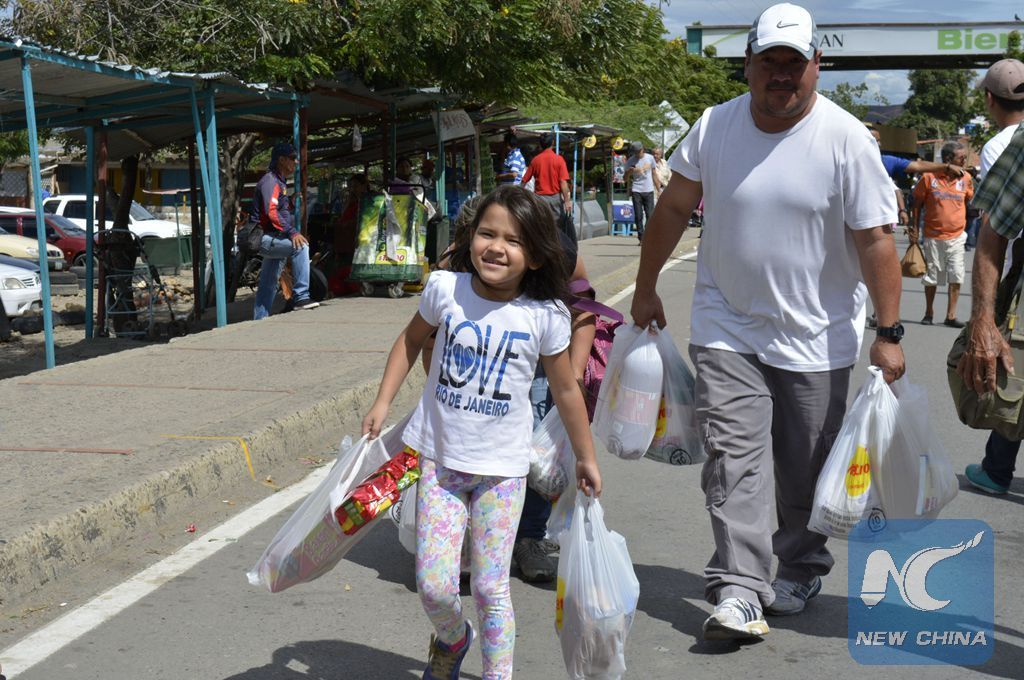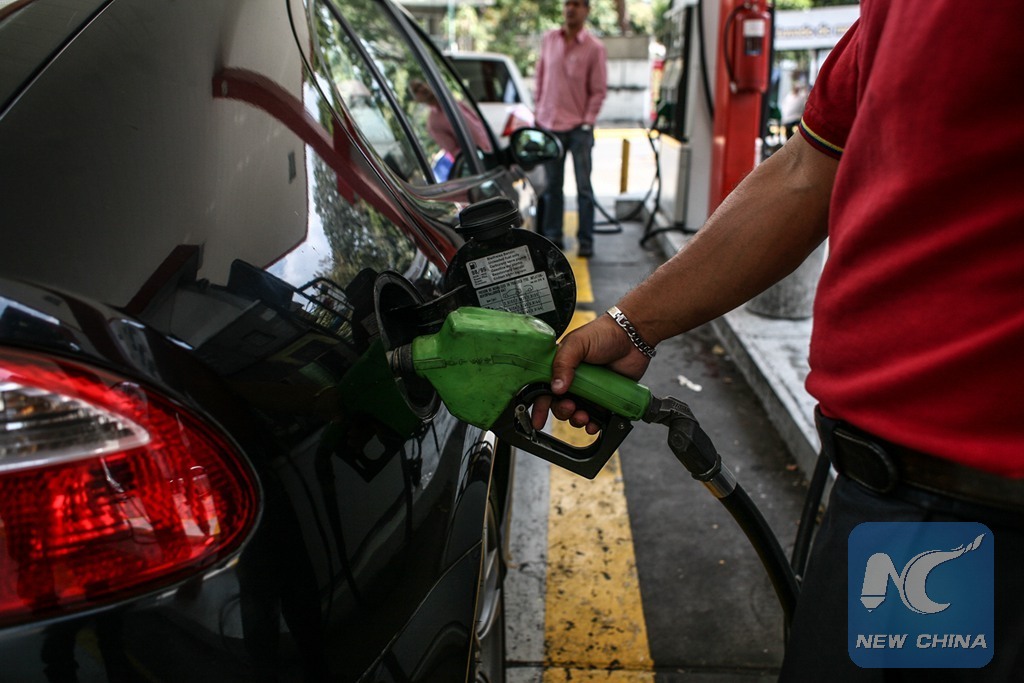
Photo provided by Diario La Opinion shows Venezuelan citizens carrying bags of food and other products they bought at a supermarket in San Jose de Cucuta, Colombia, on July 10, 2016. Venezuelan government temporarily opened its border with Colombia from 05:00 local time for 12 hours on Sunday, for Venezuelan people to cross and shop in the neighboring country. (Xinhua/Edinsson Figueroa/Diario La Opinion)
CARACAS, Aug. 7 (Xinhua) -- Between 1999 and 2013, Venezuela enjoyed an economic boom due to high oil prices, but those happy days now seem far away as the country is facing one of the world's worst economic crises, with inflation running up by 180 percent in just one year.
President Nicolas Maduro has blamed the crisis on foreign elements leading "an economic war" against Venezuela, backed by the local opposition, according to government statistics.
He has pointed his finger at a web page based in Miami, the United States, named Dollar Today, which serves as an indicator of the "real dollar value" of goods in Venezuela, as a comparison to the prices actually being paid in the country.
Economist Luis Enrique Gavazut told Xinhua that studies have shown that "Dollar Today" could be responsible for up to 70 percent of the inflationary components in Venezuela since 2013, "which constitutes a speculative attack on our national currency".
Other experts, however, ridiculed the theory, saying the economic situation is "due to errors applied by the government", especially in terms of regulating the prices of basic goods and the foreign exchange system.
Yuraima Suarez, an economist from the Catholic University in Tachira, told the Diario de los Andes newspaper this week that severe macroeconomic policies, including encouragement of the private sector, are needed.
"The central bank has lost autonomy, it has become the government's piggy bank. There is no control on the delivery of money. This has created severe distortions in the economy," said Suarez.

An employee supplies an automobile with fuel at a gas station in Caracas, Venezuela, on Feb. 19, 2016. Venezuelan President Nicolas Maduro on Wednesday announced an increase of gasoline prices for the first time in 20 years due to plummeting revenues from crude exports. (Xinhua/Boris Vergara)
While certain industries have indicated that inflation in Venezuela is linked to a fall in productivity, Gavazut maintained that "national production levels have been maintained and even promoted in certain sectors".
"The volume of production for the entire private manufacturing industry of Venezuela grew at barely 9 percent on average from 1997 to 2011, while prices for the same manufacturers grew by 1,550 percent over the same time", he explained.
"These numbers show the crude reality of the monopoly and oligarchy of the Venezuelan economy, where big companies are not interested in increasing production because it means extra costs," continued Gavazut.
Luis Silva, a lawmaker from the opposition Democratic Unity Roundtable, warned in an interview this week with the Globovision TV that Venezuela could see "hyperstagflation in 2017". Hyperstagflation means a long period of little to zero economic growth, with very high unemployment rate and fast-rising prices.
To avoid the scenario, "it is imperative to generate confidence for investments to return to the country," said Silva.
Venezuela has been plagued by triple-digit inflation and a severe shortage of commodities for months amid a world oil price slump which has collapsed the oil-rich country's economy.
The Maduro government has activated emergency mechanisms to stimulate key sectors against the envisioned "economic war", including hydrocarbons, petrochemicals, agriculture, mining, telecommunications, construction, industry and tourism.

